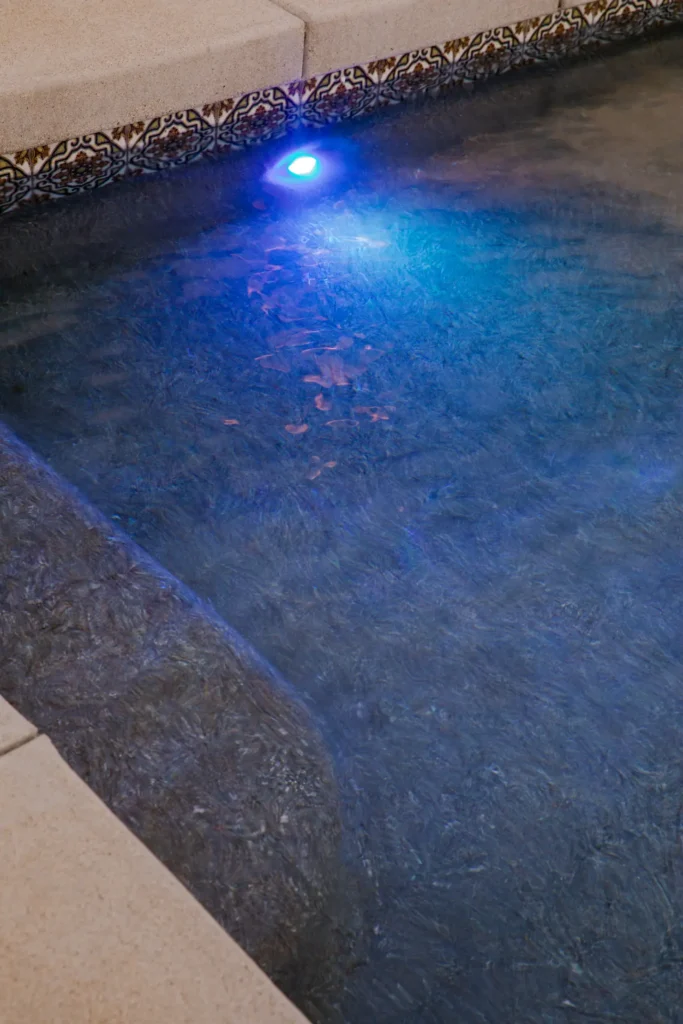Owning a swimming pool is a dream come true for many. It’s a source of endless summer fun, a beautiful backyard centerpiece, and a fantastic way to relax. Routine maintenance like skimming leaves, testing water chemistry, and cleaning the skimmer baskets are all manageable DIY tasks. But what happens when the problem is more than just a few leaves or cloudy water?
While the DIY spirit is commendable, some pool problems are complex, dangerous, and can become significantly more expensive if not handled correctly from the start. A surprising number of major pool equipment repairs stem directly from improper maintenance or failed DIY fixes.
Here are five common pool problems where putting down the tools and picking up the phone to call a professional technician is your best and safest bet.
1. The Pool Pump Motor is Making Strange Noises or Won’t Turn On
Your pool pump is the heart of the entire circulation system, and its motor works hard to keep your water clean and clear.
- The Symptoms: You might hear loud, unusual noises like grinding, screaming, or humming. In other cases, the motor might trip the circuit breaker repeatedly or simply refuse to start at all.1
- Why You Need a Pro: Pool pump motors are a dangerous combination of high-powered electricity and water. A humming sound could indicate a seized motor or a faulty capacitor, while grinding noises often point to worn-out bearings. Attempting to fix this yourself without proper training can lead to severe electrical shock or permanently damage the motor. A technician can safely diagnose the issue, replace specific parts like bearings or capacitors, or advise if a full motor replacement is the more cost-effective solution.
Insight: A failing motor can be a major energy drain. A new, energy-efficient variable-speed pool pump can save homeowners a substantial amount each year in electricity costs compared to an older, single-speed model. A technician can help you make the right choice for an upgrade.
2. Suspected Leaks in the Plumbing or Pool Structure
Losing water from your pool is always a concern. While some water loss is due to evaporation, a sudden or significant drop in the water level points to a leak.
- The Symptoms: You’re adding water to your pool more than once a week, you notice damp or mushy spots in your yard around the pool, or you see visible cracks in the pool’s shell or tile line.
- Why You Need a Pro: Finding the source of a pool leak is a job for a specialist. In Utah, the integrity of the pool shell, a critical factor set during the Santa Clara pool construction, can degrade over time due to our intense sun and harsh freeze-thaw cycles, leading to cracks. Leaks can also hide in underground plumbing lines stressed by shifting soils or in the skimmer assembly. Technicians use sophisticated tools like electronic leak detectors and pressure testing rigs to pinpoint the exact location of a leak, saving water and preventing the need to dig up your entire backyard.
Statistic: Even a tiny, pinhole-sized leak in your pool’s plumbing system can waste over 900 gallons of water per day. That’s more than 27,000 gallons a month, leading to sky-high water bills and potential erosion damage to your pool’s foundation and surrounding landscape.
3. The Pool Heater Isn’t Working
A pool heater extends your swimming season, but when it malfunctions, it is not a DIY project.
- The Symptoms: The heater won’t ignite, it isn’t heating the water to the set temperature, or it’s making unusual noises and shutting off unexpectedly.
- Why You Need a Pro: Pool heaters can be gas or electric. Gas heaters involve combustion, gas lines, and ventilation. These systems pose a significant risk of fire, explosion, or carbon monoxide poisoning if handled improperly. Electric heat pumps involve complex wiring and high-voltage components. A certified technician is trained to safely work with these systems, diagnosing issues from a faulty pilot light or pressure switch to a malfunctioning thermostat or a compromised heating element.
4. Persistent and Stubborn Water Quality Issues
You’ve balanced the chemicals, shocked the pool, and run the filter constantly, but your water remains stubbornly cloudy or green.
- The Symptoms: Despite your best efforts, the water is murky, or you have a recurring algae bloom that just won’t go away.
- Why You Need a Pro: While poor water quality is often a chemical issue, when standard treatments fail, it can point to a deeper problem. Sometimes, this can trace back to the original layout; for example, a custom Backyard pool design in Corona ca might inadvertently create ‘dead spots’ where water doesn’t circulate properly, encouraging algae growth. This is when a technician must investigate your filtration and circulation system. You could have cracked laterals in your sand filter or torn grids in your D.E. filter, allowing debris to bypass the filter and re-enter the pool.
5. Electrical Problems (Lights, GFCI, Bonding)
Any electrical issue related to your pool should be considered a major safety hazard.
- The Symptoms: The underwater light isn’t working, a GFCI (Ground Fault Circuit Interrupter) outlet keeps tripping, or you feel a slight tingle or shock in the water (exit the pool immediately!).
- Why You Need a Pro: This is non-negotiable. Water and electricity are a lethal combination. A qualified pool technician or an electrician specializing in pools is the only person who should diagnose and repair these issues. Problems can range from a simple burnt-out bulb to a serious failure in the pool’s bonding and grounding system, which is designed to prevent electrocution. Never attempt to fix pool lighting or wiring yourself.
The Bottom Line: While proactive DIY maintenance is key to a healthy pool, recognizing the limits of your expertise is crucial for your safety and your wallet. For these complex issues, calling a certified pool technician isn’t an admission of defeat. It’s simply the smartest move a pool owner can make. They have the tools, training, and experience to fix the problem right the first time, getting you back to safely enjoying your backyard oasis.

